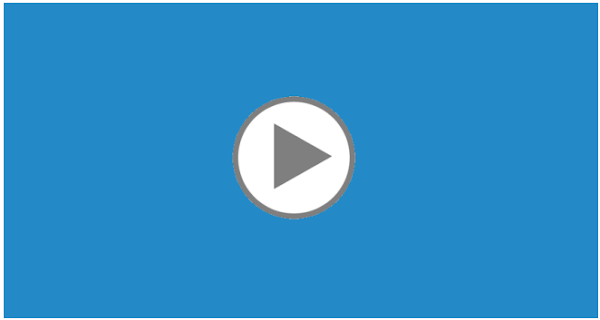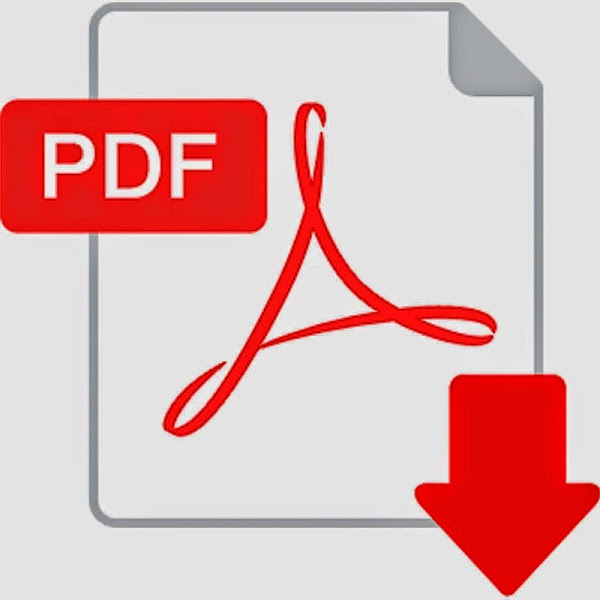— [http://goo.gl/kucYeB] Understanding and avoiding plagiarism:
Plagiarism and source citation -
The Concept of Plagiarism - There has always been and will always be a debate on plagiarism. The term "plagiarism", which conveys a strong sense of disapproval, originated from the Latin word plagiarius meaning the theft of words as well as slaves (Howard, 1995). As professor Howard, in the Department of Interdisciplinary Writing at Colgate University (1995: 790) writes, "the very etymology of the word plagiarism demonstrates the antiquity of the concept”. With the rapid development of modern technologies giving writers access to vast textual resources, plagiarism is seen as "an ever-increasing practice and problem" both within the academy and among the general population (Chandrasoma et al., 2004: 172).
Plagiarism and source citation - The Concept of Plagiarism - There has always been and will always be a debate on plagiarism. The term "plagiarism", which conveys a strong sense of disapproval, originated from the Latin word plagiarius meaning the theft of words as well as slaves (Howard, 1995). As professor Howard, in the Department of Interdisciplinary Writing at Colgate University (1995: 790) writes, "the very etymology of the word plagiarism demonstrates the antiquity of the concept”. With the rapid development of modern technologies giving writers access to vast textual resources, plagiarism is seen as "an ever-increasing practice and problem" both within the academy and among the general population (Chandrasoma et al., 2004: 172).
Are all slaves or thieves of words? – Many students have done it, even well-known writers have done it. What exactly constitutes an original text? [American]-English T.S. Eliot (1888–1965), essayist, publisher, playwright, literary and social critic, and " one of the twentieth century's major poets", published one of the best-known poems in the English language: The Waste Land (1922), a poem that is widely regarded as " one of the most important poems of the 20th century" and a central text in Modernist poetry. Readers will recognize a line in it from Baudelaire’s collection of poems entitled " Les fleurs du mal" (" The flowers of evil"). How is it possible that such a well-known and highly regarded author have deliberately chosen to 'copy words' from a widely read and highly esteemed French poet. " You! hypocrite lecteur! — mon semblable, — mon frère!" ( T.S. Eliot, verse 76). The line from Charles Baudelaire reads: " — Hypocrite lecteur, — mon semblable, — mon frère!" ('Hypocritical reader, how alike we are, just like brothers!'. My translation). (Eliot,T.S., 1922, verse 76; Baudelaire, 1857)
-
• [Audio] (mp3 file) "The Waste Land", a 433-line modernist poem, by T.S. Eliot, Part 1 - Read by Basil Munroe Godevenos, 5min.
• [Audio] (mp3 file) "The Waste Land", a 433-line modernist poem, by T.S. Eliot, Part 2 - Read by Basil Munroe Godevenos, 5min.
• [Audio] (mp3 file) "The Waste Land", a 433-line modernist poem, by T.S. Eliot, Part 3 - Read by Basil Munroe Godevenos, 7min.
• [Audio] (mp3 file) "The Waste Land", a 433-line modernist poem, by T.S. Eliot, Part 4 - Read by Basil Munroe Godevenos, 6min.

Example of what is not good citing from a non-reliable source.
Let us consider the following website: http://whitehouse.georgewbush.org
Let us consider the following website: http://whitehouse.georgewbush.org
No reasonable person would ever think that this website [WhiteHouse.GeorgeWBush.org] was sponsored or endorsed by the United States Government, given the site's patently satirical content. Moreover, at the bottom of each page of the website is the description 'A Chickenhead Productions Parody.'"
The content of this web site [WhiteHouse.GeorgeWBush.org] is intended for mature audiences, and should not be accessed by persons under 18 years of age
Now, let us read an excerpt by former USA president, George W. Bush as published on the website.
1) What do we know about the publication venue?
2) Who or what is the author or publisher?
3) What do we notice about graphics?
4) What do we notice about tone of the texts?
5) What do we notice about content in general?
6) What is the purpose of the page?
7) What issues does the site or page raise for us?
8) Is it [[whitehouse.georgewbush.org]] a good resource for a related topic, or as a secondary source for an academic essay?
Now, let us examine if any reasonable person would have used this webpage [whitehouse.georgewbush.org] as a secondary source for an academic essay or even something serious as a book on History.
when writing his book "International Law and the Construction of the Liberal Peace" (2013) on the field of the field of armed conflict (for 2014), accessed the website and cited (note 55 GWBush,'Stateof theUnion Address', The White House(28 January2003)) the publication from January 2003 ["THE 2003 STATE OF THE UNION ADDRESS: COMPLETE TRANSCRIPT OF PRESIDENT BUSH'S SPEECH TO CONGRESS AND THE NATION"] as a reliable source. Buchan's book won the American Society of International Law’s Francis Lieber Prize (Buchan, Russell, 2013)
This is what Bush said according to the source Dr. Ronald Huisken used:
This is what George W. Bush actually said at the 2004 State of the Union Address: "From the beginning, America has sought international support for our operations in Afghanistan and Iraq, and we have gained much support. There is a difference, however, between leading a coalition of many nations and submitting to the objections of a few. America will never seek a permission slip to defend the security of our country." (WhiteHouse Archives, January 20, 2004, pp. 197, 202 )
when writing her book "The Nuptial Deal: Same-Sex Marriage and Neo-Liberal Governance" (2012) on the field of Social Science, accessed the website January 2011 and refers to (note 23 GWBush,'State of the Union Address', The White House (20 January 2004)) the fictional publication from January 2004 ["THE 2004 STATE OF THE UNION ADDRESS: COMPLETE TRANSCRIPT OF PRESIDENT BUSH'S SPEECH TO CONGRESS AND THE NATION"] as a reliable source. (Whitehead, Jaye Cee, 2011)
Articles mocking George W. Bush.
The Supreme Court of the United States has held that the First Amendment fully protects satirical treatment of public figures, even when that satire is outrageous and false.
Do not let yourself fall into the trap of April Fool's 'research-day' when referring to or citing a source for an academic essay. Just have a good laugh before you keep on searching reliable sources for your academic essays. Do not make the same mistake MSNBC did when quoting a post from the satirical site, then called whitehouse.org, as an actual source.
REFERENCES:
• [1] Björkell, Johanna, 2011. [TheEdulab]. (2012, January 18). Plagiarism [Educative/Education Video]. Retrieved from https://www.youtube.com/watch?v=ptHIA5bMnio
• [2] Buchan, Russell, 2013. International Law and the Construction of the Liberal Peace, Hart Publishing, Oxford
• [3] Chandrasoma, Ranamukalage, Celia Thompson, and Alastair Pennycook, 2004. Beyond plagiarism: transgressive and nontransgressive intertextuality. Journal of Language, Identity and Education, 3 (3), 171-193.
An article that provides student examples that show insight into the understanding of plagiarism in terms of patchwriting and common knowledge. The authors argue that instead of plagiarism, we should instead use the terms "transgressive" or "nontransgressive" "textuality" as a way to more completely describe the ways that individuals use sources in their writing. Which term should be employed is only determined in context, and they should be considered within the context of intentionality, development, identity, resistance, student epistemologies, common knowledge, mediated discourse, interdisciplinary, variability and task type.
• [4] Charountaki, Marianna, 2010. The Kurds and US Foreign Policy: International Relations in the Middle East since 1945, Routledge Studies in Middle Eastern Politics
Dr. Marianna Charountaki is a Sessional Lecturer at Reading (UK) University. Her research interests range from international relations and foreign policy analysis to the international relations of the broader Middle East. She is the author of The Kurds and US Foreign Policy: International Relations in the Middle East since 1945 (Routledge, 2010) as well as a number of articles, including “Turkish Foreign Policy and the Kurdistan Regional Government,” Perceptions: Journal of International Affairs XVII, no. 4 (Winter 2012): 185–208.
• [5] Collins COBUILD, Advanced Dictionary of English, 2009. Heinle Cengage Learning.
• [6] Collins English Dictionary (2012) William Collins Sons & Co. Ltd. 1979, 1986. HarperCollins Publishers
COBUILD is an acronym for Collins Birmingham University International Language Database, indicating partly the collaboration between Collins publishers and the University of Birmingham. It is a British research facility established at the University of Birmingham in 1980 and funded by Collins publishers.
• [7] Eliot, T.S., 1922. The Waste Land. The Criterion (British literary magazine); The Dial (an American literary magazine).
• [8] Baudelaire, Charles, 1857. The flowers of evil.
• [9] Howard, R. M., 1995. Plagiarism, authorships and the academic death penalty . College English, 57 (7), 788-806. Accessed on Feb. 2015, from http://composingthoughts.qwriting.qc.cuny.edu
• [10] Huisken, Ronald, 2009. The Architecture of Security in the Asia-Pacific. ANU E Press, Canberra.
• [11] Palast, Greg, 2006. Armed Madhouse: From Baghdad to New Orleans--Sordid Secrets and Strange. Penguin Books
• [12] Timmermann, Cristian, 2013. Life Sciences, Intellectual Property Regimes and Global" p. 184, accessed on Feb. 2015, from http://unam.academia.edu/CristianTimmermann
• [13] Wells, J.C., 2000 Longman Pronunciation Dictionary. Longman. Pearson Education Limited.
• [14] Whitehead, Jaye Cee, 2012. The Nuptial Deal: Same-Sex Marriage and Neo-Liberal Governance. University of Chicago Press.
• [15] WhiteHouse Archives, 2001–2008. Selected Speeches of President George W. Bush. Accessed on Feb. 2015, from georgewbush-whitehouse.archives.gov
• [16] Wooden, John, creator of the ' Officious George W. Bush webpage', 2000/2008, accessed on Feb. 2015 from http://www.georgewbush.org

Cite: (APA) Madeira, Benjamin (2015). "Plagiarism: How to Cite Sources". Retrieved on (place month here) (place date here), (place year here), from http://www.benjaminmadeira.com/search/label/plagiarism ||
Cite: (MLA) Madeira, Benjamin. "Plagiarism: How to Cite Sources", 2015. Web. < http://www.benjaminmadeira.com/search/label/plagiarism >. Retrieved on (place month here) (place date here), (place year here). ||
Cite: (CHICAGO) Madeira, Benjamin, "Plagiarism: How to Cite Sources", 2015, accessed (place month here) (place date here), (place year here), http://www.benjaminmadeira.com/search/label/plagiarism .




:: RT: Plagiarism — «How to Cite Sources» for Students «Academic essays» Evaluating Internet Sources || #UniversityStudies #StudyNotes #English #Literature #politics #humor #satire #parody || How to Evaluate the Credibility of a Source :d
ResponderEliminarAs one of the authors you criticize, I am quite sure the original website has been changed. Here is the actual text I refer to in p. 85: "There are whole countries in Africa where more than one-third of the adult population carries the infection. More than four million require immediate drug treatment. Yet across that continent, only 50,000 AIDS victims – only 50,000 – are receiving the medicine they need . . . A doctor in rural South Africa describes his frustration. He says, ‘We have no medicines ... many hospitals tell [people], ‘You’ve got AIDS. We can’t help you. Go home and die.’ In an age of miraculous medicines, no person should have to hear those words. AIDS can be prevented. Anti-retroviral drugs can extend life for many years. And the cost of those drugs has dropped from $12,000 a year to under $300 a year, which places a tremendous possibility within our grasp ......... [T]onight I propose the Emergency Plan for AIDS Relief – a work of mercy beyond all current international efforts to help the people of Africa. . . . I ask the Congress to commit $15 billion over the next five years, including nearly $10 billion in new money, to turn the tide against AIDS in the most afflicted nations of Africa and the Caribbean." (accessed Feb 17, 2012). We checked the authenticity of this paragraph in different sources. The current link does not lead to this passage, unfortunately I did not make a copy of the webpage (something I should have done). We did not base our argument on a site with a banner of chickenhead. CT.
ResponderEliminar5519C33117
ResponderEliminarTakipçi Satın Al
M3u Listesi
Google Konum Ekleme
Kazandırio Kodları
Total Football Hediye Kodu